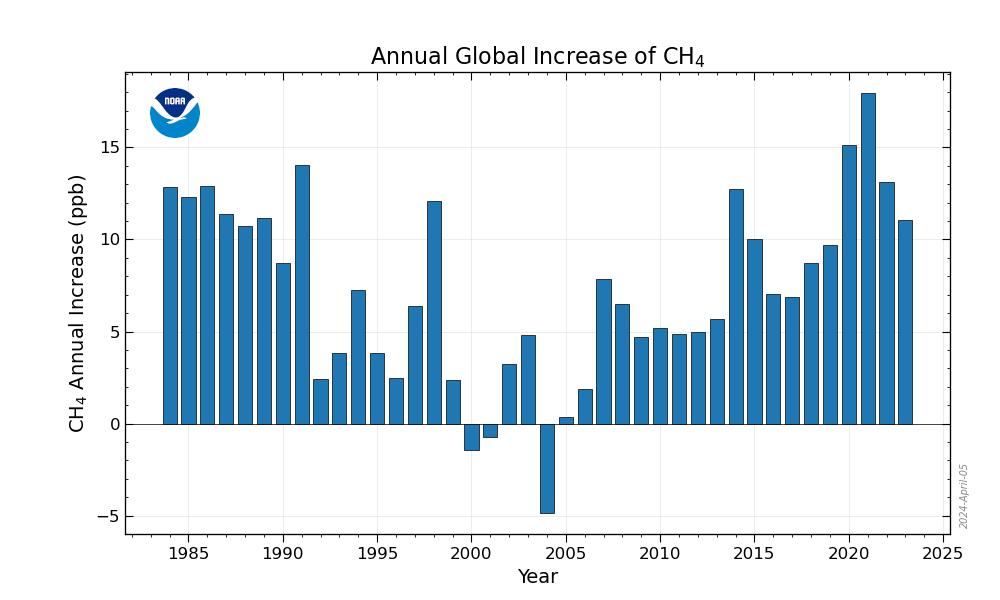
Many of Earth’s “vital signs” have hit record extremes, indicating that “the future of humanity hangs in the balance”, a group of the world’s most senior climate experts have said.
More and more scientists are now looking into the possibility of societal collapse, says the report, which assessed 35 vital signs in 2023 and found that 25 were worse than ever recorded, including carbon dioxide levels and human population. This indicates a “critical and unpredictable new phase of the climate crisis”, it says.
The temperature of Earth’s surface and oceans hit an all-time high, driven by record burning of fossil fuels, the report found. Human population is increasing at a rate of approximately 200,000 people a day and the number of cattle and sheep by 170,000 a day, all adding to record greenhouse gas emissions.
The scientists identified 28 feedback loops, including increasing emissions from melting permafrost, which could help trigger multiple tipping points, such as the collapse of the massive Greenland icecap.
Global heating is driving increasingly deadly extreme weather across the world, they said, including hurricanes in the US and 50˚C heatwaves in India, with billions of people now exposed to extreme heat.
“We’re already in the midst of abrupt climate upheaval, which jeopardises life on Earth like nothing humans have ever seen,” said Prof William Ripple, of Oregon State University (OSU), who co-led the group. “Ecological overshoot – taking more than the Earth can safely give – has pushed the planet into climatic conditions more threatening than anything witnessed even by our prehistoric relatives.
“Climate change has already displaced millions of people, with the potential to displace hundreds of millions or even billions. That would likely lead to greater geopolitical instability, possibly even partial societal collapse.”
The assessment, published in the journal Bioscience, says the concentrations of CO2 and methane in the atmosphere are at record levels. Methane is a potent greenhouse gas, 80 times more powerful than CO2 over 20 years, and is emitted by fossil fuel operations, waste dumps, cattle and rice fields.
“The growth rate of methane emissions has been accelerating, which is extremely troubling,” said Dr Christopher Wolf, formerly of OSU, who co-led the team.

The researchers said global heating was part of a wider crisis that included pollution, the destruction of nature and rising economic inequality. “Climate change is a glaring symptom of a deeper systemic issue: ecological overshoot, [which] is an inherently unstable state that cannot persist indefinitely. As the risk of Earth’s climate system switching to a catastrophic state rises, more and more scientists have begun to research the possibility of societal collapse. Even in the absence of global collapse, climate change could cause many millions of additional deaths by 2050. We need bold, transformative change.”